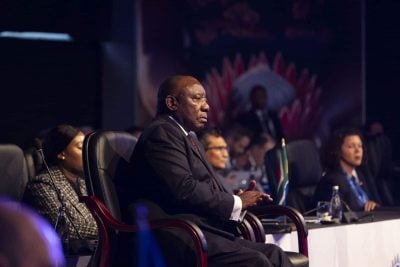Tullow Oil’s mounting financial concerns are impacting on its projects in East Africa. Tom Collins reports on how this could affect oil production in the region
Kenya’s President Uhuru Kenyatta was filmed last August jubilantly celebrating Kenya and East Africa’s first ever crude oil exports along with county governors and oil executives at the port of Mombasa.
The oil had been transported by truck from Kenya’s northwestern Turkana region where London-listed Tullow Oil discovered moderate reserves at the Lokichar basin in 2012. The small-cap oil company, which mostly operates in Africa, estimates the Kenyan field to hold 560m barrels of oil and had expected to produceup to 100,000 barrels per day from 2022.
In neighbouring Uganda, the firm has been a key partner in the Lake Albert project which is estimated to hold 1.7bn barrels of recoverable oil and could reach up to 230,000 barrels per day when it reaches full capacity.
Though both projects had suffered serious delays due to regulatory issues and pipeline concerns, final investment decisions (FIDs) had been nearing and the region was anticipating commercial production in the mid-2020s.
These hopes have dimmed after Tullow Oil’s mounting financial concerns led it to seek either a partial or complete exit from both projects as it plans to restructure and strengthen its balance sheet.
Production problems in Ghana and poor exploration results in Guyana triggered a share price collapse of more than 70% and the untimely departure of Tullow’s CEO Paul McDade.
This has been exacerbated by an international oil price collapse that has seen Brent crude crash to less than $30 a barrel following the Saudi-Russia price war and the global economic impact of the coronavirus pandemic.
Kenya and Uganda are now looking for already-invested entities or new partners to buy out Tullow’s stakes in the projects, but the international situation makes this uncertain, meaning that East Africa’s oil exporting hopes are once again in doubt.
“There’s good deposits in both Kenya and Uganda but if you can’t get them out of the ground and onto the market then they have no value,” says Ed Hobey-Hamsher, senior Africa analyst at global risk consultancy Verisk Maplecroft.
Turbulent times
Tullow posted a $1.7bn after-tax loss in 2019, down from an $85m profit the year before, citing production issues in Ghana and failure to make progress on projects in Uganda and Kenya. Calling the collapse of crude prices a “perfect storm”, the company questioned its long-term survival.
“The Group may not be able to sufficiently progress any planned portfolio management activities,” it said in a statement. “There is a material uncertainty, that may cast significant doubt, that the Group will be able to operate as a going concern.”
In order to stay afloat, Tullow hopes to save some $200m by axing 35% of its workforce and closing all offices beyond its London base. It has also cancelled dividend payouts to shareholders, downgraded the price of oil in its financial projections, and is looking to make $1bn from the sale of certain assets, those in East Africa being the most likely.
According to industry experts, Tullow has enough liquidity to last for 12 months in the worst-case scenario where crude oil prices continue to suffer and production is lower than expected.
Potential exit in Kenya
Tullow is the majority shareholder in Project Oil Kenya which is 25% owned by French major Total and 25% by Toronto-listed African Oil. The Anglo-Irish firm is widely expected to reduce its stake by half or exit completely and Total is looking to reduce its share by 50%.
Despite various setbacks, the project was on track for FID in the third quarter of this year following a heads of terms (HoT) agreement in June 2019 that sets out key fiscal and commercial principles for development of the discovery.
If Tullow were to exit, the challenge would fall to Kenya to find a buyer who is able to continue the progress made on the project. Speculation that Total is looking to buy Tullow Oil’s operations in East Africa was dismissed by CEO Patrick Pouyanné.
Africa Oil, which through lack of financial muscle is unable to develop the project alone, now faces a project without two partners. In the current climate, Chinese companies could foreseeably take over the project, analysts say.
“If you look around and you say who else has a strategic interest in getting these assets it would be the China National Offshore Oil Corporation (CNOOC),” says Charles Wanguhu, platform coordinator for the Kenya Civil Society Platform on Oil and Gas (KCSPOG). “They have assets in Sudan, South Sudan and Uganda and they have the financial muscle to build the pipeline.”
Other reports indicate the China National Chemical Corporation (ChemChina), Royal Dutch Shell or ExxonMobil may have an interest. Despite enormous setbacks, Tullow remains positive about the FID.
“Tullow remains fully committed to Kenya, and the board has approved the requisite 2020 budget targeting a Final Investment Decision(FID) at the end of 2020,’’ it said in a statement.
However, according to analysts this remains extremely unlikely. “In terms of FID there is no identified buyer, there is no one leading the project, so it will be very hard to achieve an agreement with all the layers of uncertainty unless Total has a change of heart,” says Wanguhu. “With the two players who want to leave, production in the estimated two to three years is highly optimistic.”
Towards a solution in Uganda
In neighbouring Uganda, Tullow’s financial difficulties should have less of an impact on oil production. Tullow had intended to farm-down its stake in the Lake Albert project from 33.33% to 11% – earning $900m for its transfer to other partners Total and CNOOC who currently own 33.3% each.
Following a dispute with the government over capital gains tax, the farm-down agreement was terminated and the previous estimate of achieving FID within the year looks to be delayed yet again.
“While Tullow’s capital gains tax position has been agreed, as announced in the group’s 2018 full year results, the Ugandan Revenue Authority and the joint venture partners could not agree on the transfer of capital allowances related to the consideration to be paid by Total and CNOOC as buyers,” Tullow said last November.
Tullow will renegotiate with the government and Uganda’s energy minister Irene Muloni said a solution had been found which could lead to FID in the first quarter of 2020 and production in 2023, although no details were given.
President Yoweri Museveni has been keen to attach a $3bn, 60,000 barrels per day oil refinery to the Lake Albert project which the oil companies oppose, leading some to question the move towards FID even if the Tullow dispute is solved.
That said, Paul Bagabo, from the New York-based Natural Resource Governance Institute, says that next year’s election may spur some positive developments: “Two oil producing areas in Uganda are keen for this to be solved because they want to see production, so the president can get a huge boost if he finalises these issues.”
As a key player in the region, Tullow’s dire financial position will impact two of East Africa’s most promising projects which already face a host of separate issues.
Want to continue reading? Subscribe today.
You've read all your free articles for this month! Subscribe now to enjoy full access to our content.
Digital Monthly
£8.00 / month
Receive full unlimited access to our articles, opinions, podcasts and more.
Digital Yearly
£70.00 / year
Our best value offer - save £26 and gain access to all of our digital content for an entire year!
 Sign in with Google
Sign in with Google 


